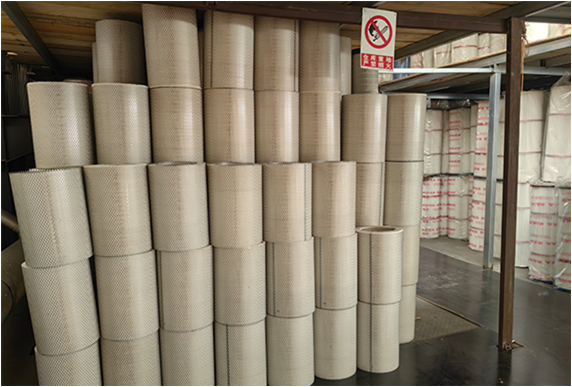 Tel:
+8615930870079
Tel:
+8615930870079
Aug . 12, 2024 22:56 Back to list
Improving Efficiency of Gas Turbine Air Intake Filters for Enhanced Performance and Longevity
The Importance of Air Intake Filters in Gas Turbine Operations
Gas turbines are vital components in various industries, predominantly in power generation and aviation. Their efficiency and reliability are paramount, and one of the critical elements influencing their performance is the air intake system, particularly the air intake filter. This article delves into the significance of air intake filters in gas turbine operations, addressing their functions, types, maintenance, and impact on performance.
Key Functions of Air Intake Filters
Air intake filters serve as the first line of defense for gas turbines against environmental contaminants. The primary function of these filters is to remove particles such as dust, dirt, and other pollutants from the air before it enters the combustion chamber. By ensuring that only clean air reaches the turbine, intake filters play a crucial role in maintaining the operational efficiency and longevity of the gas turbine engines.
Moreover, clean air is essential for optimal combustion. Contaminants can impair the combustion process, leading to decreased efficiency, increased emissions, and potential damage to turbine components. In extreme cases, a contaminated air intake can lead to serious operational failures, resulting in costly downtime and repairs.
Types of Air Intake Filters
There are various types of air intake filters utilized in gas turbine applications, each designed for specific operating conditions and environments. The most common categories include
1. Mechanical Filters These filters physically capture particles through a mesh or fibrous material. They are effective for larger particles but may require frequent replacement or maintenance.
2. Electrostatic Filters Utilizing static electricity, these filters attract and trap particles, providing a higher efficiency compared to mechanical filters. They are particularly useful in environments with fine particulate matter.
3. HEPA Filters High-Efficiency Particulate Air (HEPA) filters can remove up to 99.97% of particles 0.3 microns in diameter. While typically more expensive, they are ideal for critical applications where air quality is paramount.
gas turbine air intake filter

4. Cyclonic Separators These devices use centrifugal force to remove larger particulates from the air stream. While not commonly used as primary filters, they can serve as pre-filters to extend the life of downstream filters.
Maintenance and Monitoring
Effective maintenance of air intake filters is essential to ensure the longevity and efficiency of gas turbines. Regular inspections and monitoring of filter conditions can help operators identify when filters need replacement, thus preventing airflow restriction and ensuring optimal performance. The maintenance cycle may vary based on the operating environment; for instance, turbines operating in dusty conditions require more frequent checks.
Advanced monitoring technologies, such as pressure drop sensors, can provide real-time data on filter condition, allowing operators to make informed decisions regarding maintenance. By incorporating predictive maintenance strategies, operators can minimize downtime and extend the lifespan of both the filters and the turbine.
Impacts on Performance and Efficiency
The performance of gas turbines is closely linked to the quality of the air entering the system. Clogged or dirty air filters can significantly reduce airflow, leading to a decrease in power output and efficiency. In essence, neglecting air intake filter maintenance directly translates to operational inefficiencies and increased fuel consumption.
Furthermore, maintaining clean air intake filters contributes to lower emissions and a smaller environmental footprint. In today’s regulatory landscape, where environmental compliance is essential, the role of air intake filters in achieving lower emissions cannot be overstated.
Conclusion
In conclusion, air intake filters are critical components in the operation of gas turbines. They protect the engines from contaminants, ensuring efficient combustion and prolonging turbine life. Understanding the types of filters available, implementing regular maintenance, and monitoring their performance are essential for optimizing turbine operations. As industries continue to focus on efficiency and environmental sustainability, the importance of air intake filters in gas turbines will only grow.
-
Types and Applications of Air Filtration CartridgesNewsJul.28,2025
-
The Role of Gas Turbine FiltersNewsJul.28,2025
-
Mastering Air Filter Cartridge UseNewsJul.28,2025
-
Advanced Turbine Filters for Modern Gas TurbinesNewsJul.28,2025
-
Cellulose Air Filter Cartridge Advantages in Dust FiltrationNewsJul.28,2025
-
Cellulose Filters for Air Particle ReductionNewsJul.28,2025

 Email:
Email:





